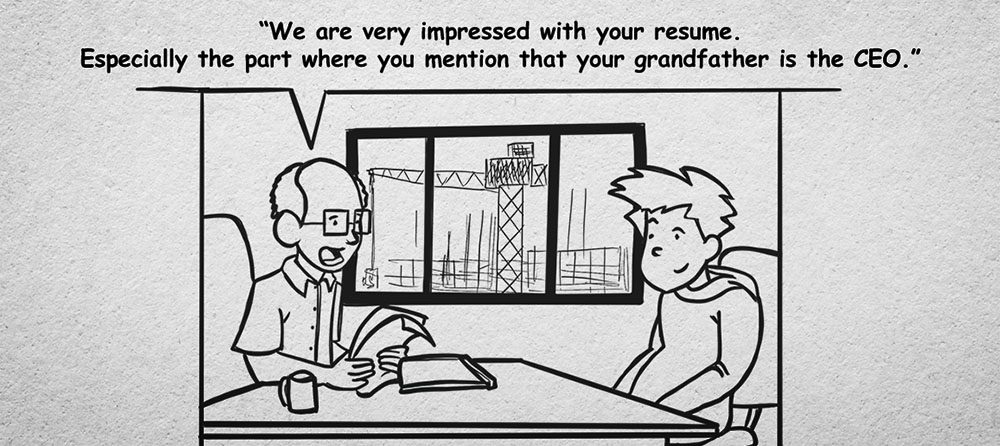Tilly was a good hider; that much I knew firsthand. For the first few weeks I had her (seriously, I'm talking like fifteen or sixteen straight days), I didn't see her once.
I knew she was alive, and I knew she was here-- food disappeared from her bowl, the litter box was being used regularly, and occasionally I found stray hairs on my laundry-- but she'd clearly found a very clever place to hide.
The day she introduced herself to me was one I'll never forget. I was a morning person back then, waking with alacrity each day between 4:45 and 5 AM. That day I’d been lounging on the couch with a podcast in my ears, trying not to wake my cohabitants, when I suddenly felt a weight come down on my chest and settle there.
Blinking, I found myself staring right into the prettiest green eyes I’d ever seen. They were wide for her face, and endlessly deep, looking at me with something like knowing acceptance. As though for two weeks she’d been watching me, scoping me out, and now she had decided that I was worthy of her trust.
“Hello,” I'd murmured. She continued to study me for a moment, then let her attention flicker to my chest. Her white paws kneaded me gently, and I knew the sweat glands between her little toes were busy depositing her scent into my shirt.
I raised one hand slowly, letting her see my outstretched fingers and giving her plenty of time to communicate any misgivings about the gesture. She apparently had none, so I very gently stroked her face, noticing for the first time how unbelievably soft she was. Those big green eyes met mine again for a moment before closing contentedly.
We stayed like that for a long time, as I continued to gently peruse her face with my fingertips. Soon enough I'd found the spot, nestled in her jawline right where it hinged open, and when she leaned into the touch I kneaded it with more pressure.
"Of course you like that," I said softly. She pressed her face more firmly against my fingertips, as if she was agreeing with me.
"It's okay, baby girl," I told her. "I've got you."
It had taken her two weeks of living in my house for her to trust me enough to come out of hiding. So it shouldn't have surprised me that, when she was caught in the house fire that displaced my family for a year, Tilly's first reaction was to hide. She was a cat, after all. And cats are very good hiders.
But still... I can't help but wonder if she might've made it, as the dogs had, had she gone in search of people rather than hide.
Thomas, a firefighter I met on one of my ride-alongs through Reg, told me that he'd once saved a barn cat from a fire when the structure went up in smoke.
 "I had to drag it out," he told me. "And you know what it did as soon as I got it to safety?"
"I had to drag it out," he told me. "And you know what it did as soon as I got it to safety?"
"Scratch the shit outta you?" I guessed.
He chuckled sadly and shook his head. "As soon as I put the poor thing onto the ground, it ran right back into the flaming barn."
It's funny how those survival instincts work. Tilly felt safer hiding in some familiar place in the burning house than she did with strangers. Silly cat and her misguided instincts.
But, don't humans do the same thing sometimes?
One of the oldest truths about human existence is that we all hurt each other. A lot. We break up with each other, miss recitals and eat our roommates' whipped cream from the freezer. Life, love, relationships-- they're all just us bumping around blindly, mostly trying not to screw things up as we fall in and out of situations one after the next.
But we also need each other. No man is an island, after all. We all rely on one another, on sharing perspectives and skills and insights. We exchange comfort and validation, reassuring one another that there is hope beyond the next sunrise.
So why is it that sometimes, when the thing we need most is other people, we draw away? Is it fear, or the feline instinct to hide? Is it wariness of being hurt again the way you've been hurt before? Is it shame for having to admit we can't do it alone?
Whatever the reason, it's a dangerous and possibly deadly instinct.
I read somewhere once that cats who sense that they're about to die will isolate themselves, find a quiet place to go on their own time-- maybe that's what she was doing. For cats, it makes sense. They do that when they feel that their time is up, at the point where most intervention would be futile. It's their way of dying with a bit of dignity, where they won't bother anyone as they pass quietly into the quiet, dark beyond.
But... we're not cats. As humans, isolating in a time of great need is a dangerous, perhaps even deadly maneuver.
At work, I hate asking for help. As a recent hire, I'm still considered probationary until I've proven myself by staying put for six months. I was signed off two weeks ago, which means somebody thought I was capable of doing this job on my own. To ask someone for help is to admit that I'm not fully independent, that I have more still to learn. It means taking the risk of being seen as incapable, after all, of doing my job.
But sometimes, not asking for help can make it worse. If the thing I don't know how to do in the moment doesn't get done, it means my job has not been done correctly. I become a bigger liability by not asking than I would be by admitting I didn't know the first time.
This goes beyond skills, though. Recently I received some news of a family issue that knocked me off-kilter, and I realized quickly that it was affecting me negatively.
I wasn't sleeping, and the next day I was late to work. At the end of that shift, the supervisor was coming in to replace me. As he set up for the morning, I apologized profusely. I didn't have any excuses; exhaust from the sleepless day spent tossing restlessly between tangled sheets as I turned over in my head all that had happened had simply won out. My alarm just wasn't enough to rouse me.
He must have picked up on the fact that something was wrong, though. "It's impossible to fully disentangle your personal and professional lives," he told me in a follow-up email later that day. "Part of my job as your supervisor is to help you navigate those stressors -- I can't influence or fix the things going on in your personal life, but I can be a sounding board if you need to confide in someone."
Before starting in my dispatch career, I'd never been someone who shies away from asking for help. But something about the way Reg treated me as a trainee, as though every clarifying question I asked was being tallied against me. At the end of the day, my trainers' reports came back with a list of things I hadn't been able to yet do on my own, SOPs I had not yet memorized, names I hadn't been able to place with the respective town, rank, and badge number. I was tired of being the new guy, fed up with being judged for needing help.
But... I do need help. We all do, sometimes. Whatever insecurities we hide behind, whatever misgivings about trusting other people with our vulnerabilities-- sometimes we just need to know when to admit, I can't do this on my own. Only after we admit that can we actually reap the benefits of existing as members of a highly social species intrinsically dependent on cooperation.
Public safety and law enforcement require a lot of trust. When lives are on the line, agencies need to be sure they can trust the people they hire. For that reason, much like medicine or politics, these are fields wrought with nepotism and highly dependent on referrals, favoring the familiar over the connectionless outsider often even in spite of qualifications.
Towards the end of my time at Reg, I confided in Gabe my anxieties about being able to finish strong. He told me not to worry about it.
"Focus on being successful here if you can," he said. "But if things don't work out, then come find me."
Sure enough, the day Regional sent me away with nothing but a severance letter and a broken heart, he had been leaving work just as I was on my way in to get fired. We sat together in the parking lot, and he called out from the other job he'd been about to leave for an evening shift at. I gave myself twenty minutes to wallow and be miserable, then he came over to my place and we got to work implementing his plan.
First, he connected me with Kara, whom he had personally trained at his favorite job. That agency wasn't hiring, but Kara also worked for another PSAP, one that was currently hiring and that also happened to be an eight-minute drive from my apartment. Then he helped me workshop my resume to include Reg, and coached me in what to say when they asked about why I left. When it was done and there was nothing left to coordinate, he still stayed, sitting beside me on the couch as I lamented the loss of my dream job and cried about how much of a failure I felt like.
"You are not a failure," he said gently.
"I got fired."
"You'll get hired again."
But it wasn't the same. I tried to explain that with Regional, I had done it all by myself. And as much as I appreciated his help, as much as I was sure my dispatch career would've been dead in the water without him, I hated that I needed his help. I didn't want to be the girl who got hired because she was friends with the right people. I didn't want to be somebody whose qualifications for a job were grounded more in connections than merit.
"You are not a failure just because you accept help," he reassured me, again and again until the words themselves had lost all meaning. Semantic meaning, though, and nothing more. Though the words themselves brought me little comfort, I did internalize his meaning, and I began to realize something.
In all of human history, no feat has ever been a solitary effort. Benjamin Franklin's key-on-a-kite-string routine wouldn't have been much to speak of had a locksmith not once carved the key. Babe Ruth made baseball history backed by his teammates. That doesn't make the individual any less of a maverick, and certainly doesn't make any of them failures.
What I had been running from, just as Tilly once ran from the firefighters who would have saved her life, was the fear of failure, of not being good enough.
The fear of needing help is what I'd been hiding from.
Now it was time I stopped hiding, before the roof collapsed on top of me.



No comments:
Post a Comment